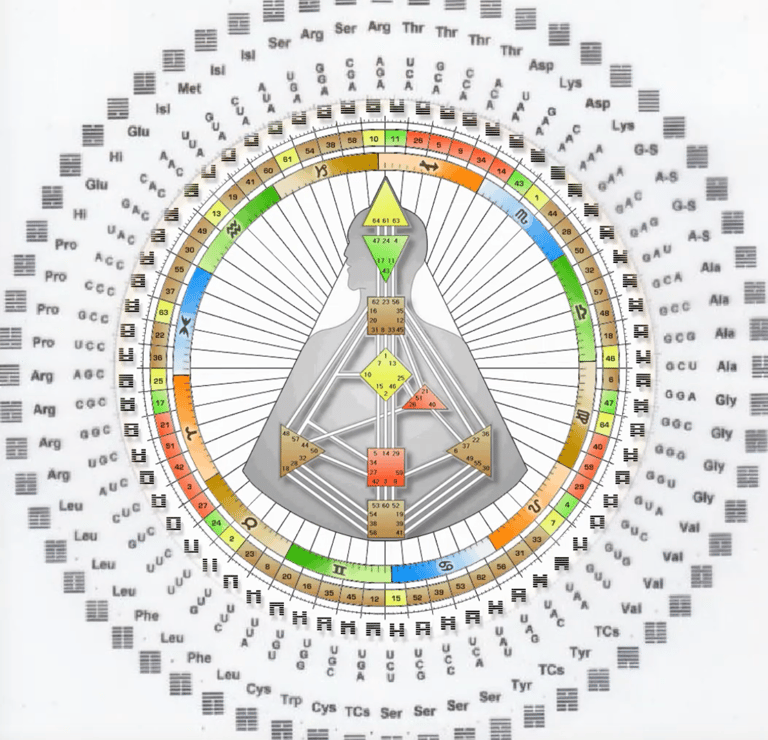

Human Design
Human Design is a synthesis of ancient wisdom (Western Astrology, the Chinese I Ching, the Indian Chakra system, and Jewish Kabbalah) and modern sciences (Quantum physics, Biology, and Genetics). It serves as a powerful tool for understanding human nature, offering a unique map of your genetic design. This map provides detailed information about both the conscious and unconscious aspects of who you are, differentiating you from everyone else.
Based on a system of 9 centers, 64 gates, 36 channels, 6 lines (12 profiles), and 13 planetary imprints (26 activations), Human Design delivers profound insights into your psychology. It reveals strategies and techniques for making decisions aligned with your true nature, leading to a life of greater ease and fulfillment. Essentially, a Human Design reading gives you a personal "user manual" to unlock your talents, skills, and potential. It shows how your inner guidance system operates, how you are designed to engage with the world, where you are susceptible to external influences and conditioning, and provides practical techniques for making decisions that are in tune with your authentic self.
What can Human Design do for you?
Human Design is often used as a tool for self-awareness and self development, helping individuals better understand their unique traits & strengths, as well as their natural tendencies & challenges. It can be particularly useful in addressing several personal and relational issues, such as:
1. Decision-Making
Human Design provides guidance on how individuals are best suited to make decisions based on their "authority." People often struggle with decision paralysis or making choices that don’t align with their true nature. Human Design helps individuals trust their own specific process (emotional authority, sacral authority, etc.), allowing for clearer, more aligned decisions.
2. Managing Stress and Burnout
People often push themselves to operate in ways that don’t align with their energy type, leading to stress or burnout. For example, a Reflector trying to live like a Generator (by doing too much and not allowing enough rest) may feel overwhelmed. Human Design can guide people to operate in ways that conserve energy and reduce unnecessary stress.
3. Career and Life Purpose
Understanding one’s energy type and strategy can clarify what types of work or roles suit a person’s natural gifts. For example, Generators are often suited for roles where they can respond to opportunities, while Projectors thrive in environments where they can guide others. Human Design can provide insight into one’s true life purpose or "right work," leading to greater fulfillment and success.
4. Relationships and Communication
Human Design can help improve interpersonal relationships by shedding light on how different energy types interact. Understanding the dynamics between different types (e.g., how a Projector and a Generator might communicate) allows people to reduce misunderstandings, frustration, and friction in relationships—whether romantic, familial, or professional.
5. Health and Well-being
By understanding one’s energy centers (similar to the chakras), Human Design can help people identify areas where they are more prone to stress or imbalance. Undefined centers, in particular, can be vulnerable to conditioning and burnout if not properly managed. Awareness of these tendencies can support better health habits and lifestyle choices.
6. Overcoming Conditioning
Human Design emphasizes how individuals can be conditioned by external forces—such as societal norms, family expectations, or even astrology. It provides a framework for recognizing areas of life where a person may have been conditioned to act inauthentically and helps them peel back those layers to live more in alignment with their true nature.
7. Parenting and Child Development
Parents can use Human Design to better understand their child’s natural strengths, tendencies, and decision-making processes. This can help in fostering a supportive environment that allows children to thrive without imposing societal or parental pressures that don’t align with their true selves.
8. Self-Acceptance and Living Authentically
Many people face inner conflict from feeling they need to conform to societal or familial expectations. Human Design encourages self-acceptance by highlighting unique traits, strengths, and potential challenges. It validates the idea that everyone has their own way of moving through life, reducing the pressure to compare oneself to others. At its core, Human Design helps people live in alignment with who they truly are. By following their strategy and authority, individuals can step away from societal programming and external pressures, allowing them to lead lives that feel more fulfilling, joyful, and authentic.
Does anything above interest you? Contact me for more information.


